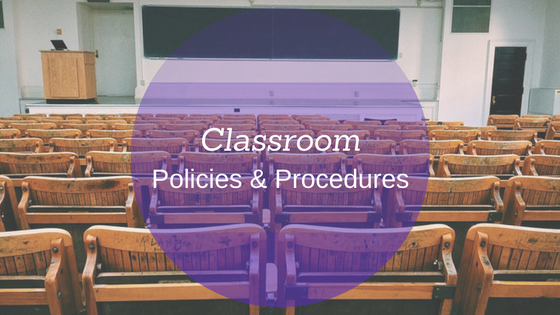
When developing a course or syllabus, professors often encounter a few questions they need to answer that may influence the classroom environment. These classroom policies and procedures are critical to identify before a course begins so that students can be assured of the expectations of them in the upcoming course.
A major course policy that professors need to develop before the semester is the course’s attendance policy. That is, will attendance be mandatory (a part of the grade) or optional? If so, will this mandatory attendance be an all-or-nothing portion of the grade or will it be proportional to the frequency of a student’s attendance? Often, the answer to these questions depend on the professor’s preferences and philosophies regarding the purpose of class time and on the size of the class.
For smaller classes, if attendance will be mandatory, a sign-in sheet is generally sufficient, but it may be difficult to require attendance at lectures, causing some professors to make lectures optional (but requiring attendance at recitations or labs). Creative methods like technology that tracks student participation in class can help professors require attendance at lectures, if they want to make it mandatory.
Another classroom policy you may need to develop regards technology and laptop usage. Many of today’s students will use laptops to take notes during lectures, but some professors make the choice to ban laptops and similar technology like tablets from their classrooms. Why? In large classes, some professors feel that allowing students to take notes on paper only may prevent students from browsing Facebook or other distracting websites during class.
However, some professors don’t see technology use as a problem, as they argue that forbidding technology in the classroom only penalizes students who take better notes by typing on account of their peers’ inability to pay attention. In addition, in smaller classes, students may be more likely to pay attention, given that the professor is able to call on them more readily, which could make a no-technology classroom unnecessary.
A final course policy professors may need to determine is their policy regarding office hours. Office hours generally happen at the same time each week, and students are allowed to come into the professor’s office at that time to ask questions about the subject material of the course. For larger classes where students don’t have frequent interaction with the professor, providing office hours can be helpful and a good way to connect with students. For smaller classes, many professors provide office hours still but provide them by appointment, allowing students to access their help without the confining restriction of weekly office hours.
These are just a few of the classroom procedures and policies a professor might need to reflect on before a class begins. Other types of questions professors should ask themselves regard class cancellation procedures and accessibility for students with disabilities. With these topics in mind, professors can get one step closer to setting expectations and guidelines for their students.

